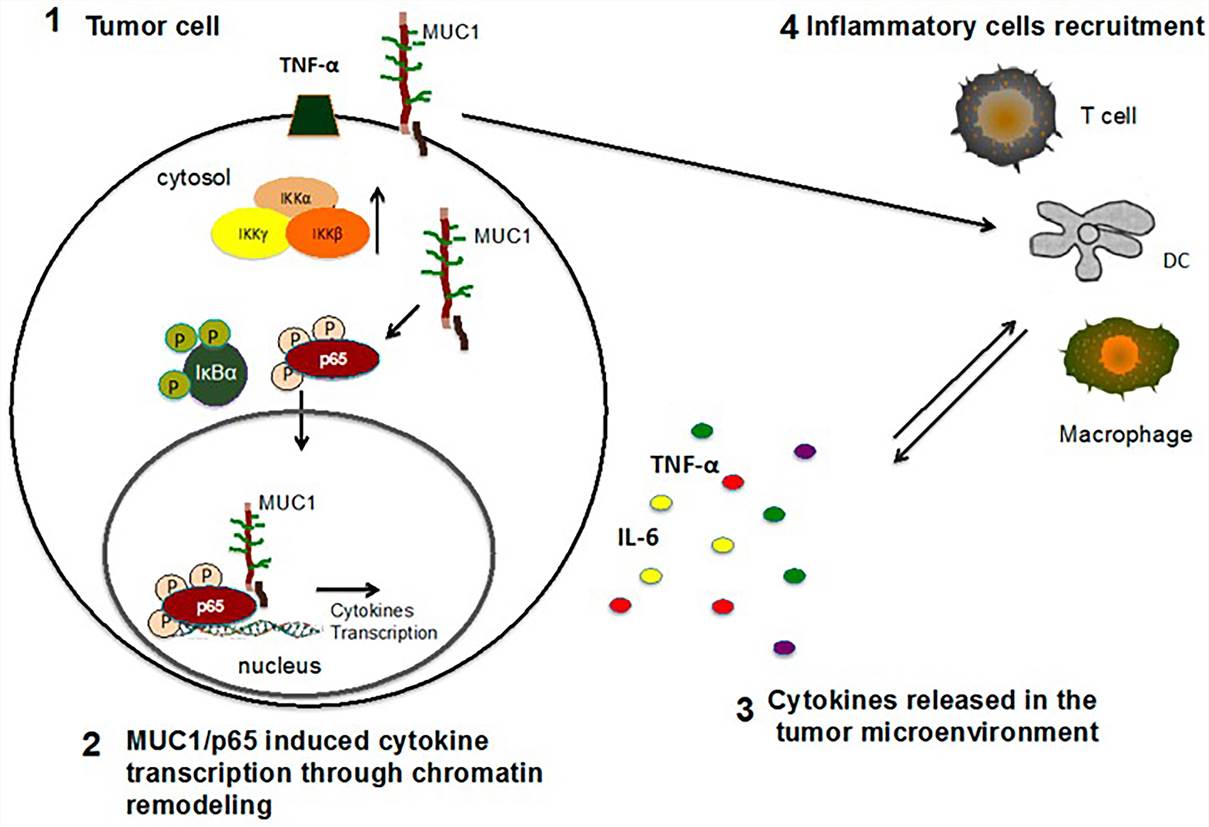CA27-29 Assay Portfolio Service
Breast cancer is the most common cancer and the leading cause of cancer-related death among women. Research has demonstrated that MUC1-derived tumor markers, cancer antigen 27-29 (CA27-29), showed to be of prognostic value in metastatic breast cancer and were routinely used in the management of patients at this stage. With advanced and high-end technologies, rich experienced scientists, Creative Biolabs is an excellent service provider in the field of tumor marker assay. After long years ahead to fully comprehend tumor markers, we launch our CA27-29 assay portfolio service which can be used in targeted cancer therapy and diagnosis. Next, we will introduce the assay portfolio service about CA27-29 targeting as follows.
Introduction of CA27-29
CA27-29, also known as breast carcinoma-associated antigen, is a carbohydrate-containing protein antigen produced by the MUC-1 gene. MUC-1 is the product of the MUC-1 gene, which is a transmembrane glycoprotein expressed by glandular epithelia. The function of MUC-1 is associated with cell signaling and anti-pathogens. Additionally, MUC-1 was expressed in a variety of malignant cells including ovarian, lung, pancreatic, breast, and prostate carcinomas.
The Role of MUC1 in the Tumor Microenvironment
-
When inflammatory stimuli occur, MUC1 induces the activation of nuclear factor kappa B members and binds to phopsho-p65.
-
MUC1/ phopsho-p65 complex could translocate to the nucleus, associate with the promoter of pro-inflammatory cytokines, such as interleukin 6 and tumor necrosis factor alpha, promoting their transcription and expression.
-
The secretion of inflammatory cytokines recruits myeloid cells and neutrophils (inflammatory cells) into the tumor site.
-
The inflammatory cells are a further source for pro-tumorigenic and pro-inflammatory cytokines which can enhance tumor progression and growth.
 Fig.1 Model of MUC1 role in the tumor microenvironment. (Cascio, 2016)
Fig.1 Model of MUC1 role in the tumor microenvironment. (Cascio, 2016)
CA27-29 and Cancer
The expression of CA27-29 is widely exhibited in various other malignancies and other benign disorders related to liver, breast, kidney, and in patients with ovarian cysts. Especially, CA27-29 is highly related to breast cancer. Research showed that about 80% of women with breast cancer have an increased CA27-29 level, as increased in 30% of patients with the low-stage disease, and 60 to 70% of patients with advanced-stage breast cancer. CA27.29 is derived from MUC-1 and can be applied with other assessments to monitor treatment in metastatic breast cancer. Studies have demonstrated that CA27.29 tends to be more specific and sensitive than CA15-3 which is also derived from MUC-1. The test of CA27.29 marker is applied to monitor the progression and metastatic state of breast cancer.
CA27-29 Blockade Assays at Creative Biolabs Including but Not Limited to:
-
Invasion assay
-
Metastasis assay
-
Migration assay
-
Proliferation assay
If you are interested in our service, please contact us or directly send us.
Reference
-
Cascio, S.; et al. Intra- and extra-cellular events related to altered glycosylation of MUC1 promote chronic inflammation, tumor progression, invasion, and metastasis. Biomolecules. 2016, 6(4): 39.
For Research Use Only | Not For Clinical Use


 Fig.1 Model of MUC1 role in the tumor microenvironment. (Cascio, 2016)
Fig.1 Model of MUC1 role in the tumor microenvironment. (Cascio, 2016)
 Download our brochure
Download our brochure